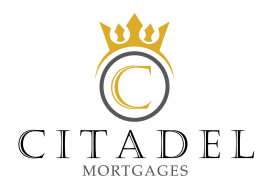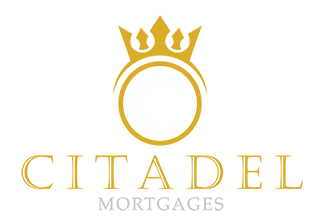Applying for a mortgage can be a daunting task, especially for self-employed individuals. The strict approval requirements, which include strong creditworthiness, stable employment and income, and a substantial down payment, can make it challenging for self-employed Canadians to qualify for a mortgage. However, it is not impossible. In this article, we will explore the process of qualifying for a self-employed mortgage in Canada, the types of self-employed mortgages available, and the lenders you should approach.
What Is a Self-Employed Mortgage?
A self-employed mortgage is a personal mortgage specifically designed for self-employed individuals. While some lenders may have dedicated products for self-employed clients, the term “Self-Employed Mortgage” is generally used for marketing purposes. These mortgages consider self-employment income to qualify borrowers for a personal mortgage. It is important to note that the approval criteria and income documentation requirements may vary between lenders. What one lender accepts may not qualify you at another, and the flexibility of the lender may also depend on the amount of your down payment.
How does a Self-Employed Mortgage work in Canada?
Obtaining a self-employed mortgage in Canada can be more challenging than a conventional mortgage due to the nature of self-employment income. Unlike traditional employment income, self-employment income tends to fluctuate and is less consistent. Banks and credit unions are cautious when it comes to fluctuating income, making the approval process more difficult. Additionally, lenders use the net income reported on Line 150 of your income tax return to qualify your application. Self-employed individuals often deduct business expenses, resulting in a lower net income than their actual earnings. While lenders may “gross up” income by adding back some deductions, it may not be enough to meet the approval requirements.
Who is considered self-employed in Canada?
In Canada, you are considered self-employed if you are a business owner or work for yourself and secure contracts directly from clients. This includes sole proprietors, partners, and individuals who draw a salary from their own corporation. Self-employment encompasses various professions, such as commission salespeople, freelance workers, farmers, and more.
What are the types of Self-Employed Mortgages?
When applying for a self-employed mortgage, lenders may require different types of income confirmation depending on your employment status. Here are the three common types of self-employed mortgages and their respective income documentation requirements:
Traditional Income Mortgages
If you earn traditional income as a self-employed individual, which refers to salaried or hourly income from regular employment, you may need to provide the following documentation:
- One or more recent pay stubs
- T4 slip from the most recent tax year
- Bank statements with confirmation of direct deposit
- Letter of employment
- Notice of Assessments
Fluctuating Income Mortgages
Most self-employed individuals fall into this category, where their income fluctuates from month to month. To qualify for a fluctuating income mortgage, you may need to provide the following documentation:
- Two years of accountant-prepared income tax returns, including the Statement of Business Activities and Notice of Assessments
- Accountant-prepared financial statements (if applicable)
Stated Income Mortgages
In some cases, self-employed borrowers may not be able to provide income confirmation that meets the requirements of a traditional mortgage. This often occurs when business owners use various tax deductions and credits to reduce their taxable income. Stated income mortgages allow borrowers to state their income without providing extensive documentation. However, these mortgages typically come with higher down payment requirements and interest rates. They are often offered by private lenders and require a down payment of 50% or more, along with proof of high net worth.
Why Is it Difficult to Get a Mortgage When Self-Employed?
There are two primary reasons why it is more challenging for self-employed individuals to qualify for a mortgage. First, self-employment income tends to fluctuate, making banks and credit unions nervous. They prefer stable and consistent income. Second, lenders use the net income reported on your income tax return to qualify your application. Self-employed individuals often deduct business expenses to reduce their taxable income, resulting in a lower net income. While lenders may add back some deductions to “gross up” income, it may not be sufficient to meet the approval requirements, particularly the debt servicing requirements.
How can I apply for a Self-Employed Mortgage?
When applying for a self-employed mortgage, you will need to provide various documents to support your mortgage application. It is essential to be prepared and have access to the following documents:
- Two most recent years’ Notice of Assessments (NOAs)
- Two most recent years’ income tax returns (accountant-prepared)
- Statement of Business Activities from your income tax return
- Proof of income taxes paid to demonstrate no arrears
- Evidence of business ownership, such as Articles of Incorporation, Business Name Registration, Business License, bank account confirmation, bank statements, and Business number
- Accountant-prepared financial statements for corporations
- Gift letter (if receiving a down payment as a gift from a family member)
- List of assets and liabilities (personal net worth statement)
- Confirmation of investments from all financial institutions
What are the requirements for a Self-employed mortgage?
The requirements for a self-employed mortgage may vary between lenders, but here are some general criteria to consider:
- At least two years of self-employment history, although some lenders may consider recently self-employed individuals under specific circumstances
- Sufficient cash reserves, especially for recently self-employed individuals
- Predictable earnings, such as through government contracts
- Relevant training and education in your field
- Excellent credit history
- Meeting the lender’s debt servicing requirements, typically a Total Debt Service (TDS) ratio of 39% or lower and a Gross Debt Service (GDS) ratio of 44% or lower
- Down payment requirements, which can vary depending on the lender and the borrower’s creditworthiness
- The property must be located in Canada and suitable for full-time occupancy
What are the advantages of Self-Employed Mortgages?
Self-employed mortgages offer several advantages for self-employed individuals, including:
- The opportunity to own a home and build equity
- Flexibility in income documentation requirements, allowing self-employed individuals to qualify for a mortgage based on their unique financial situation
- Potential tax benefits, as mortgage interest is tax-deductible for self-employed individuals
- The ability to invest in real estate, which can yield long-term financial benefits
What are the disadvantages of Self-Employed Mortgages?
While self-employed mortgages have their advantages, there are also some disadvantages to consider:
- Stricter approval requirements due to the fluctuating nature of self-employment income
- Higher down payment requirements compared to traditional mortgages
- Potentially higher interest rates, particularly for stated income mortgages from private lenders
- Limited options from traditional lenders, as they may be more cautious when lending to self-employed individuals
Who can provide self employed mortgages in Canada?
Self-employed individuals in Canada can obtain mortgages from various lenders, including:
- A lenders:
These include major Canadian banks and most credit unions. A lenders generally offer the lowest interest rates but have stricter approval requirements. - B lenders:
B lenders are smaller, less regulated lenders who may be more accommodating to self-employed borrowers. They have slightly higher interest rates but are more flexible in their lending criteria. - Private lenders:
Private lenders are equity lenders who consider borrowers with poor credit histories or those who do not meet the income requirements of A or B lenders. Private lenders offer fast approvals and funding but have the highest interest rates.
Who do I reach out to for a Self-Employed Mortgage?
If you are considering a self-employed mortgage, it is advisable to work with a mortgage broker who specializes in self-employed mortgages. A mortgage broker has experience dealing with various lenders and can help you navigate the approval process. They can shop your application to different lenders, including A lenders, B lenders, and private lenders, to find the best mortgage options for your unique financial situation.
At Citadel Mortgages, we specialize in helping self-employed individuals secure mortgages. Our team of experienced mortgage brokers understands the challenges faced by self-employed borrowers and works tirelessly to find the best mortgage solutions. Contact us today to discuss your mortgage needs and get started on the path to homeownership.
What is the difference between Conventional mortgage and self-employed mortgage?
The main difference between a conventional mortgage and a self-employed mortgage lies in the income documentation requirements. Conventional mortgages are designed for traditionally employed individuals with stable and consistent income. The income documentation typically includes pay stubs, T4 slips, and employment letters.
On the other hand, self-employed mortgages have more flexible income guidelines and require additional documentation to verify income for self-employed individuals. This can include income tax returns, Notice of Assessments, bank deposit slips, customer invoices, and other financial statements. Self-employed mortgages consider both personal taxable income and business income to assess the borrower’s financial stability and ability to make mortgage payments.
Final Thoughts on Self-Employed Mortgages
In recent years, mortgage lenders in Canada have become more accommodating to self-employed borrowers, recognizing the unique nature of self-employment income. While it may be more challenging to qualify for a mortgage as a self-employed individual, it is not impossible. Working with a knowledgeable mortgage broker and understanding the requirements and options available can help you navigate the process successfully.
If you are considering self-employment or are already self-employed, it is essential to plan ahead and take care of any borrowing needs before making the transition. Establishing a solid track record of self-employment income for at least two years can increase your chances of qualifying for a self-employed mortgage with more favorable terms.
Frequently Asked Questions about Self-Employed Mortgages
How much can I borrow for a mortgage if I’m self-employed?
The total amount you can borrow for a self-employed mortgage varies depending on several factors, including your income, creditworthiness, debt levels, and the lender’s policies. Lenders typically use a debt-to-income ratio to determine how much you can borrow. This ratio compares your total debt payments to your gross income. Generally, lenders prefer a debt-to-income ratio of 39% or lower.
Can you have a mortgage with no income?
It is highly unlikely to qualify for a mortgage with no income. Lenders need assurance that you have the financial means to repay the loan. While self-employed individuals may have more flexibility in income documentation, they still need to provide evidence of income to qualify for a mortgage.
How many years do you have to be self-employed to get a mortgage?
Most lenders require at least two years of self-employment history to qualify for a self-employed mortgage. This allows lenders to assess your income stability and financial track record. However, there may be exceptions for recently self-employed individuals who can demonstrate stability through other means, such as sufficient cash reserves, predictable earnings, relevant training, and an excellent credit history.
What is proof of income for self-employed in Canada?
Proof of income for self-employed individuals in Canada typically includes income tax returns, Notice of Assessments, bank statements, customer invoices, and other financial documents that demonstrate your income and financial stability. These documents help lenders determine your ability to make mortgage payments.
Can I get a self-employed mortgage without proof of income?
While it may be possible to obtain a self-employed mortgage without traditional proof of income, such as pay stubs and T4 slips, it is challenging. Stated income mortgages, where borrowers state their income without extensive documentation, are generally offered by private lenders. These mortgages often require a higher down payment and have higher interest rates.
What is the criteria for self-employed in Canada?
The criteria for self-employed individuals in Canada vary depending on the lender and the type of mortgage you are seeking. Generally, lenders consider factors such as self-employment history, income stability, credit history, debt levels, down payment amount, and the property’s suitability for full-time occupancy.
Are mortgage rates higher for self-employed borrowers?
Mortgage rates for self-employed borrowers can vary depending on several factors, including income stability, creditworthiness, down payment amount, and the lender’s policies. While self-employed borrowers may face higher interest rates compared to traditionally employed individuals, it is not always the case. With a strong financial profile and a solid track record of self-employment income, self-employed borrowers may still qualify for competitive interest rates from A lenders.
What is the minimum amount for self-employed?
There is no specific minimum amount for self-employed individuals. The amount you can borrow depends on various factors, including your income, creditworthiness, debt levels, and the lender’s policies. Lenders typically assess your ability to make mortgage payments based on your income and debt-to-income ratio.

Unexpected costs when buying a home in Canada
When buying a home in Canada, there are several unexpected costs that buyers should be aware of to avoid financial surprises. Some of the key

Considering An Early Mortgage Renewal
Why consider renewing your mortgage ahead of time? Well, one big reason is changes in interest rates. If rates drop, jumping on an early renewal

How to get a HELOC on an Investment Property in Canada
To get a Home Equity Line of Credit (HELOC) on an investment property, you need to follow these steps: 1. Know Your Finances: Estimate the

Expert Advice: Buying a House in Cash in Canada
In exploring the possibility of buying a house in cash in Canada, it’s essential to understand the various aspects that come into play. Here’s a

Average Down Payment for a House in Canada
According to the Canadian Real Estate Association, the average house price in Canada hit around $637,673 in August 2022. This means if you’re looking to

Assumable Mortgages: An In-Depth Look
Assumable mortgages are a unique financing alternative that could potentially save you thousands of dollars and simplify the home-buying process. But what exactly are they





